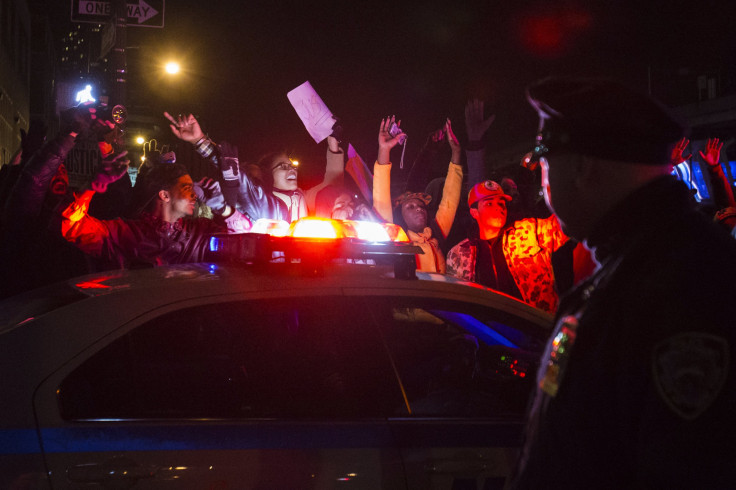White Police Officer Indicted In Killing Of Unarmed Black Man In South Carolina

A white former police chief in South Carolina has been charged with murder in the death of an unarmed black man. A grand jury announced Wednesday that they would charge Richard J. Combs, who served as chief in Eutawville, S.C., for the killing of Bernard Bailey. Combs is scheduled to stand trial Dec. 8, according to the New York Times.
The indictment came on the heels of a grand jury decision in New York not to charge Officer Daniel Pantaleo in the death of Eric Garner, an unarmed black man who Pantaleo was seen using a chokehold maneuver on in a video posted online. The decision not to charge Pantaleo, and a separate decision by a grand jury in Missouri not to charge Ferguson Police Officer Darren Wilson for the death of teenager Michael Brown, had prompted a series of protests throughout the country.
State investigators started a review of the South Carolina shooting in March 2013 after a U.S. Justice Department investigation determined Combs had not violated Bailey's civil rights, according to an Associated Press report. In August 2013, Combs was charged with misconduct in office, which carries a maximum sentence of 10 years in prison.
Carl B. Grant, an attorney representing Bailey’s family, said Thursday that his family was happy the grand jury decided to indict Combs for murder as well.
“They honestly felt the charge of misconduct in office was really insufficient to represent the gravity of what happened,” said Grant, who added that the indictment “reassures you that there is still a level of justice one can respect in the American judicial system.”
A partial video of the shooting was published by the website of a local newspaper and showed Combs shooting Bailey three times in the chest during a struggle inside Bailey’s truck, the Times reported, as he claimed he was trying to serve the man with an arrest warrant. Combs attempted to invoke South Carolina’s Stand Your Ground law in his defense, but was rebuffed by the judge.
“In a situation such as this, where the arrestee poses no threat to the public, there are other means of executing an arrest warrant if initial service is unsuccessful,” Judge Edgar W. Dickson of the Circuit Court wrote in an order last month.
“There was no need for Mr. Combs to act as he did on May 2, 2011, when Mr. Bailey refused service, as Mr. Combs expected would happen. Mr. Combs should have allowed Mr. Bailey to leave and enlisted the assistance of other officers or serve the warrant at court as he originally planned.”
© Copyright IBTimes 2024. All rights reserved.






















